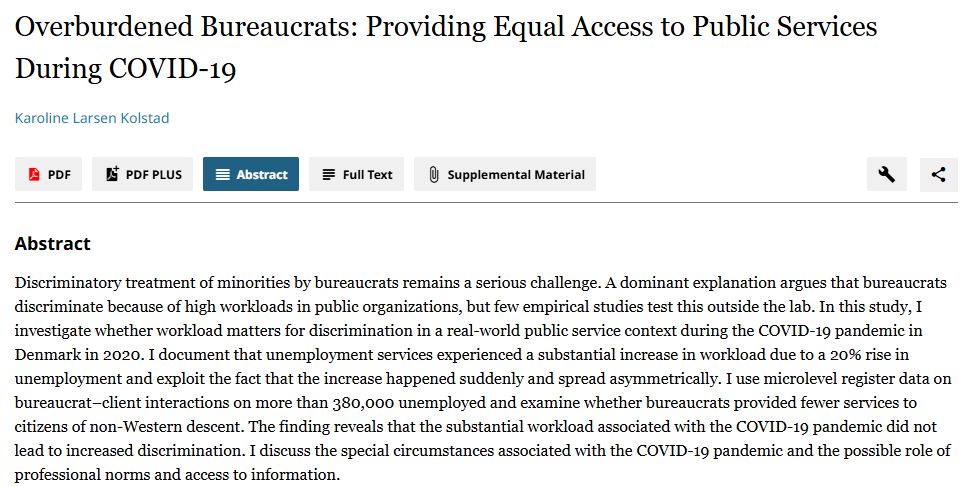
by Guy Grossman — Reposted by: Roman Senninger, Bonnie N. Field
This paper has been a labor of love. osf.io/preprints/os...

Reposted by: Roman Senninger, Chris Hanretty
www.cambridge.org/core/journal...
by Roman Senninger — Reposted by: Roman Senninger, Robert Huber
New paper w/ Derek Beach and Jannik Fenger on framing effects out in @ejprjournal.bsky.social
Open Access: doi.org/10.1017/S147...

Reposted by: Roman Senninger, Simon Hix, Sara Wallace Goodman
👉🏽 Section chairs: @kristinabsimonsen.bsky.social & @aalrababah.bsky.social
📢 Our section section brings together research on the politics of migration, including migration flows, government policies to manage mobility, and the politics of forced displacement. >>>
6/
A recent ReStud article:
In this article, we study key features of the innovation and diffusion of policies (...). Our study builds on the efforts of political scientists who have studied this topic since at least Walker (1969)(...).
Wow!
Submit it to next year's @epssnet.bsky.social conference section on "European and EU Politics“ 👇
@bjornhoyland.bsky.social & I are open to diverse proposals with a European dimension.
by Anand Menon — Reposted by: Roman Senninger, Steve Peers, Ben Rosamond , and 1 more Roman Senninger, Steve Peers, Ben Rosamond, Anand Menon
But is it a model we should emulate? @kristinabsimonsen.bsky.social explains. ukandeu.ac.uk/denmarks-mig...

Reposted by: Roman Senninger

www.science.org/doi/10.1126/...

Reposted by: Roman Senninger

by Timothy Hellwig — Reposted by: Roman Senninger
www.journals.uchicago.edu/doi/10.1086/...


Reposted by: Roman Senninger
See threat and link below below 👇
1/9

by Timothy Hellwig — Reposted by: Roman Senninger

Please reach out if you would like any more details.
I’m presenting pilot data @lundsuniversitet.bsky.social today:
Nordic and richer countries are preferred benchmarks, but performance information can shift who is seen credible.
\w @muzhou-zhang.bsky.social and @winniexia.bsky.social


New version of @twidmann.bsky.social and my working paper answering:
* Have moral appeals increased over time?
* Is the tendency to moralize ideologically patterned?
* Are some topics consistently more moralized than others?
osf.io/preprints/os...
Pre-print: osf.io/preprints/os...
by Roman Senninger — Reposted by: Roman Senninger, Alexander Wuttke, Martin Bækgaard
Using RDD and elite survey data from Denmark, we show that losing candidates express greater concern about electoral fairness.
🔗 doi.org/10.1086/734240

We have 3 lines open in CP, IR and IPE — all tenure-track.
We offer competitive salaries, a 2:1 teaching load, in a friendly (and fully in English) environment, at one of Europe’s most sought-after cities.
Reposted by: Roman Senninger, Carl Henrik Knutsen
And thank you to @inalkristiansen.bsky.social and @jonaswschmid.bsky.social for co-organizing the event

Reposted by: Roman Senninger

Reposted by: Roman Senninger, Mark J. Brandt
Elected officials are increasingly extreme.
E.g., a recent analysis of 84,000 state-level candidates found that extreme candidates are now winning at the highest rates in 30 years.
Why are people increasingly drawn to extreme candidates?